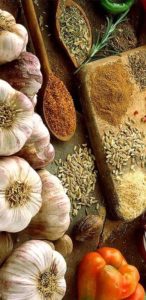Without a doubt there are natural remedies for almost all ailments or illnesses However there are a great many myths about miracle cures for acne, back pain, arthritis and so on Often you will be better saving your money and using natural methods for your aliments, aches and pains.
From our list of herbs and spices, the following are recommended for Colds and Flu:
Scroll down for links.
- Bromelain
- Cats Claw
- Cayenne
- Citrus Bioflavonoids
- Echinacea Angustifolia
- Echinacea Purpurea
- Elderberry
- Eucalyptus Leaf
- Eyebright
- Fenugreek
- Goldenseal Root
- Horehound
- Lemon Balm
- Licorice Root
- Lobelia
- Mullein Leaf
- Myrrh
- Nettle
- Pau Darco
- Peppermint Leaf
- Quercetin
- White Willow Bark
- Wild Cherry Bark
Natural Cures and Remedies for Colds and Flu
Recently Viewed
Home Remedies Blood Clots
Home Remedies Tonsillitis
Hay fever Home Remedies
Home Remedies Inflammation
Home Remedies Gastritis
Home Remedies Herpes
Home Remedies Itching
Home Remedies Ringing in the ears
Home Remedies Congestion
Hair Loss Remedies
Home Remedies Pimples
High Blood Pressure Remedies
To reduce the risk of contracting colds and flus, it is important to exercise caution when interacting with infected people. For example, wash your hands after touching a person (or touching objects the person has recently touched) who has such an infection. To reduce your risk of HIV and some types of hepatitis, avoid unprotected sexual contact or other exchanges of body fluids, such as through the use of unsterilized syringes.

Head congestion, runny nose, or cough-none of them is any fun. But armed with a little herbal knowledge, you can combat the cold blues and get back to your regular routine. Herbs high in volatile oils are great for the respiratory system because they penetrate on contact and begin alleviating symptoms right away. Herbs such as reishi and echinacea root are designed to stimulate the fighter cells that can give you a big hand up to avoid going down. Astragalus is a wonderful herb for strengthening the overall immune system in the prevention of colds and flus. One word to the wise: you should understand how best to use the two most common cold herbs-astragalus and echinacea.
Bromelain, Cats Claw, Cayenne, Citrus Bioflavonoids, Echinacea Angustifolia, Echinacea Purpurea, Elderberry, Eucalyptus Leaf, Eyebright, Fenugreek, Goldenseal Root, Horehound, Lemon Balm, Licorice Root, Lobelia, Mullein Leaf, Myrrh, Nettle, Pau Darco, Peppermint Leaf, Quercetin, White Willow Bark, Wild Cherry Bark
In general, the supplements that reduce symptoms of colds and flus can, in higher dosages, reduce symptoms and extend the lifespan in people with much more serious infections, such as HIV/AIDS. These nutrients do not have direct antiviral activity. Rather, they enhance the immune system’s ability to confront the infection, as well as to prevent nutritional deficiencies that further compromise health.
could stimulate the immune system, shorten the duration of a cold, and build up long-term immunity protection for the body. But only one of these claims is true. Echinacea does stimulate the immune system, but only for a short duration-a protective blast, so to speak. It gives you a sudden, quick blast of fighter cells to nip the very begin-nings of a cold or flu. So, for example, if your o?cemate has been coughing and sneezing, take the echinacea, and take it often, for a day or two. Is the hint of a sore throat signaling that you’re about to get a cold? Take the echinacea. But if the cold isn’t nipped, and two days later it’s still there, no matter how big or small, put the echinacea down and choose more appropriate herbs for treating a cold. Colds and flus rarely enter the body and hover-they come in, go deeper, and blossom.
Melinda’s physician put her on prednisone, a hormone treatment for allergies and arthritis, and a potent prescription-strength NSAID. Side effects from the prednisone included a seventy-pound weight gain, weakened bones, and increased susceptibility to colds and flus, which left 50
Bromelain
Cats Claw
Cayenne
Citrus Bioflavonoids
Echinacea Angustifolia
Echinacea Purpurea
Elderberry
Eucalyptus Leaf
Eyebright
Fenugreek
Goldenseal Root
Horehound
Lemon Balm
Licorice Root
Lobelia
Mullein Leaf
Myrrh
Nettle
Pau Darco
Peppermint Leaf
Quercetin
White Willow Bark
Wild Cherry Bark
frequent colds and flus, allergies, eating the wrong types of fats and carbohydrates, and by having a spare tire” around your middle. At a certain point your inflammation will boil over into painful and debilitating symptoms.
